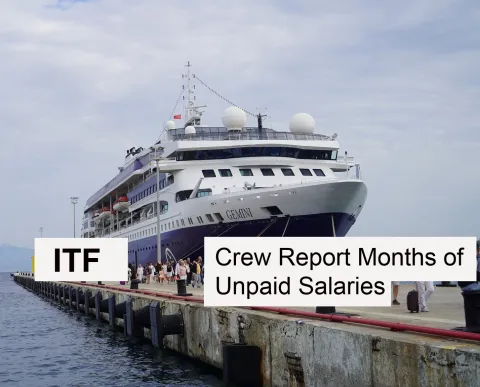
This push toward education at sea isn't random. Some crew members are working toward promotions. Others are planning for a life beyond cruising. Many see learning as the key to long-term success.
And with better connectivity and new higher education tips, there's never been a better time to make it happen. Some crew even seek outside help for tricky parts of their studies - they might pay someone to write a research paper while balancing back-to-back shifts. These small tools make a big difference. Studying at sea isn't easy, but it's possible.
Why More Crew Members Are Studying While at Sea
Growing Demand for Certifications and Degrees
Life at sea offers more than adventure. It also provides a structured routine, housing, and meals. This can free up time for learning. Cruise companies now value crew members with advanced training. Those with certifications or degrees in hospitality, safety, or management are often promoted faster.
Crew members who plan to return to land-based jobs know that education helps. Whether it's moving into hotel management, tourism, or logistics, having an education is often required. Because of this, more crew members are choosing to keep learning, even during contracts.
Remote Learning Options Now Accessible on Ships
It used to be nearly impossible to study at sea. Slow internet, limited access to materials, and a lack of structure made it hard. But times have changed. Now, Wi-Fi on ships has improved. Many cruise lines offer crew-only computer areas with decent speeds. That means access to course platforms, study apps, and even online libraries.
This access has also opened the door to better support services. Crew members can stream lectures, submit assignments, and even meet with tutors online. The sea is no longer a barrier to education. It's become just another location from which people learn.
How Crew Members Overcome Learning Challenges at Sea
Managing Time Between Shifts and Study
One of the hardest parts of studying while working on a cruise ship is time. Shifts can be long and unpredictable. Some roles involve early mornings and late nights. But dedicated learners find ways to make it work.
Many crew members set aside blocks of time during off-hours to study. Some use their one day off a week to catch up on lessons. Others take advantage of quiet times between shifts. Discipline and planning are key.
Life at sea teaches people how to manage their time. This skill helps when studying. Learning to juggle both work and classes is a challenge, but one that many manage with patience and structure - and some higher education tips!
Dealing with Limited Connectivity
Though the internet is better than it was, it's still not perfect. Spotty Wi-Fi or expensive packages can slow down progress. Some crew members download lectures and resources when in port. Others stick to reading materials and offline tools when they can't connect.
Colleges and course providers are becoming more flexible. Some now offer offline access, extended deadlines, and other options that support students with limited internet. These changes make it easier for those studying from sea.
Tools and Services That Support Studying from Sea
Online Libraries and Course Platforms
Many crew members rely on free or low-cost online resources. Platforms like Coursera, edX, and Khan Academy offer self-paced learning. Others use their school's learning management systems to stay connected.
Access to digital libraries also helps. Crew can now find books, journals, and articles from their cabins. This saves them time and keeps learning affordable. Some ships even have small libraries for the crew, including books on business, languages, and hospitality.
Having easy access to learning platforms removes one of the biggest barriers. It allows students to work at their own speed, which is critical with varying schedules and demands.
Academic Assistance Services
When time runs short, crew members sometimes turn to tutoring or writing services. These can help them understand hard topics, organize their thoughts, or finish work on time. Academic help is no longer limited to campus students.
Many rely on peer forums or study groups. Others turn to digital support, using IT services for education to manage class updates, deadlines, and digital files. Sites that offer academic help are also popular, especially for large or formal assignments.
Sometimes, working at sea means choosing priorities. And sometimes, that means letting a trusted service handle the paperwork while the crew member focuses on their day job. It's a smart way to balance it all.
Final Thoughts
For many young professionals, life at sea is more than just a job. It's a stepping stone. It's a way to see the world, save money, and build skills. And now, it's also a place to study and grow.
Life at sea is challenging, but the rewards go far beyond travel. With online tools, educational platforms, and a strong desire to learn, crew members are showing what's possible. The blend of structure and adventure makes cruise work ideal for those pursuing bigger goals.
Crew members are proving that life on a cruise ship doesn't mean hitting pause on your dreams. With smart planning and the right support, education can fit right in. Whether it's learning for promotion or preparing for a new career, the effort pays off.
These stories inspire others to keep pushing forward. The ocean may separate them from campuses, but it doesn't block ambition. Education is now part of life at sea, and it looks like it's here to stay.
From mastering self-discipline to finding higher education tips that work in tight quarters, the studying crew members are setting an example. They show that it's possible to do more, even in a demanding environment. For them, the ship isn't just a workplace - it's a classroom, too.












